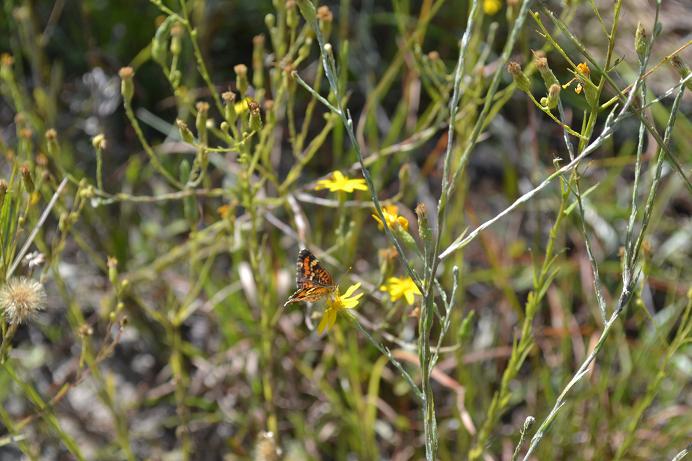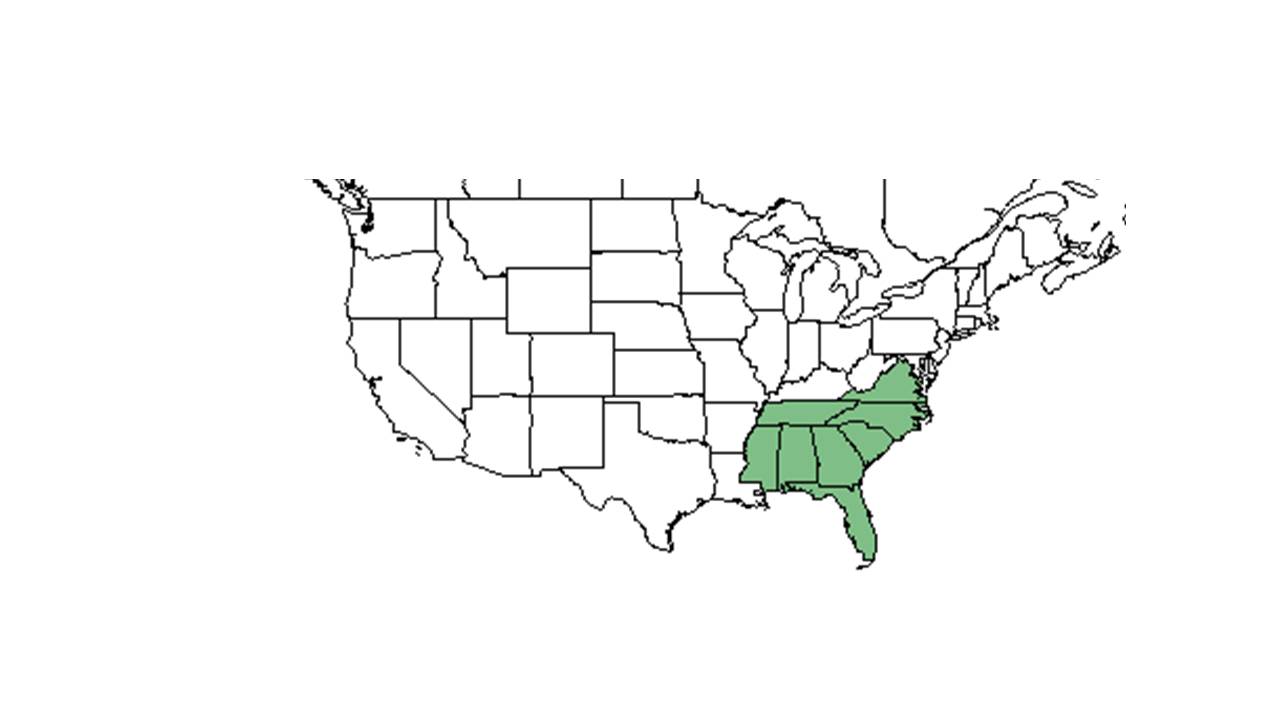Difference between revisions of "Pityopsis aspera"
| Line 35: | Line 35: | ||
==Photo Gallery== | ==Photo Gallery== | ||
==References and notes== | ==References and notes== | ||
| + | Robertson, Kevin M. 2014. Personal observation. | ||
| + | |||
| + | Gowe, A. K. and J. S. Brewer (2005). "The evolution of fire-dependent flowering in goldenasters (Pityopsis spp.)." Journal of the Torrey Botanical Society 132: 384-400. | ||
| + | |||
| + | Downer, M. R. (2012). Plant species richness and species area relationships in a Florida sandhill community. Integrative Biology. Ann Arbor, MI, University of South Florida. M.S.: 52. | ||
Revision as of 19:45, 11 June 2015
| Physalis arenicola | |
|---|---|

| |
| Photo taken by Kevin Robertson | |
| Scientific classification | |
| Kingdom: | Plantae |
| Division: | Magnoliophyta - Flowering plants |
| Class: | Magnoliopsida – Dicotyledons |
| Order: | Asterales |
| Family: | Asteraceae ⁄ Compositae |
| Genus: | Pityopsis |
| Species: | P. aspera |
| Binomial name | |
| Physalis arenicola (Shuttlw. ex Small) Small | |

| |
| Natural range of Physalis arenicola from USDA NRCS Plants Database. | |
Contents
Description
Distribution
Ecology
Habitat
P. aspera is distributed across southern Georgia and northern Florida (Gowe and Brewer 2005). Occurs in areas with an estimated pre-settlement fire-return interval of 1-3 years (Gowe and Brewer 2005). Commonly found in Florida sandhill community (Downer-MR_2012_MSThesis)
Phenology
Seed dispersal
Seed bank and germination
Fire ecology
Flowers within two months of burning in early summer (Robertson).
Pollination
Use by animals
Diseases and parasites
Conservation and Management
Cultivation and restoration
Photo Gallery
References and notes
Robertson, Kevin M. 2014. Personal observation.
Gowe, A. K. and J. S. Brewer (2005). "The evolution of fire-dependent flowering in goldenasters (Pityopsis spp.)." Journal of the Torrey Botanical Society 132: 384-400.
Downer, M. R. (2012). Plant species richness and species area relationships in a Florida sandhill community. Integrative Biology. Ann Arbor, MI, University of South Florida. M.S.: 52.